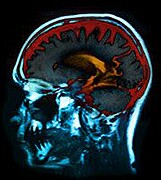- 8 Ways to Increase Dopamine Naturally
- 7 Best Breads for Maintaining Stable Blood Sugar
- Gelatin vs. Collagen: Which is Best for Skin, Nails, and Joints?
- The Long-Term Effects of Daily Turmeric Supplements on Liver Health
- Could Your Grocery Store Meat Be Causing Recurring UTIs?
- Are You Making This Expensive Thermostat Error This Winter?
- Recognizing the Signs of Hypothyroidism
- 10 Strategies to Overcome Insomnia
- Could Artificial Sweeteners Be Aging the Brain Faster?
- Techniques for Soothing Your Nervous System
Aging Brains Can Still Make ‘Childlike’ Connections: Study


Certain regions in adult brains still have a “childlike” ability to create new connections that can help people learn new skills and form new memories as they age, according to a new study.
Researchers compared gene activity levels in different parts of the brain and from people of different ages. They pinpointed brain regions in adult brains that had higher levels of activity of genes associated with the establishment of new connections between brain cells.
These same genes are highly active in young people’s brains, according to the team from Washington University School of Medicine in St. Louis and the Allen Institute for Brain Science in Seattle.
It’s believed that new connections between brain cells help adults develop new memories and skills long after their brain stops growing, explained the authors of the findings published Jan. 7 in the journal Cell Metabolism.
“We already knew that the adult human brain generally has more activity among these genes when compared with other closely related species, including chimpanzees and monkeys,” study first author Dr. Manu Goyal, a fellow in neuroradiology at Washington University, said in a university news release.
“Our new results connect this activity to a form of energy production known to be helpful for building biological structures, such as the new nerve cell branches needed to add connections in the brain,” Goyal added.
This form of energy production is called “aerobic glycolysis.” The researchers are now investigating whether problems in specific brain cells that use aerobic glycolysis play a role in brain disorders such as autism and Alzheimer’s disease.
“The ability to support the metabolic requirements of adult brain cells to create new connections may one day be important for treating brain injuries and neurodegenerative disorders,” Goyal said. “We have a lot of work to do, but this is an intriguing insight.”
More information
BrainFacts.org has more about the brain and aging.
Source: HealthDay
Copyright © 2026 HealthDay. All rights reserved.










